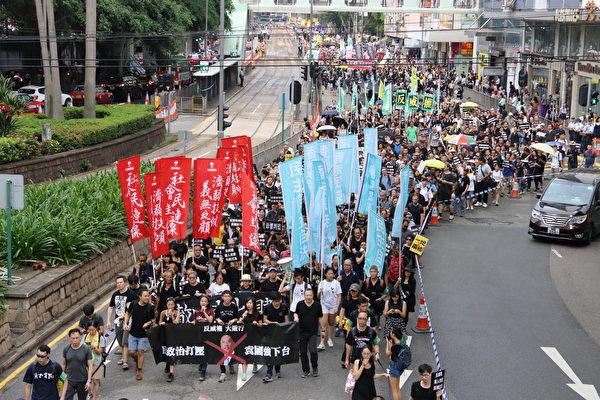HONG KONG–The Hong Kong government confirmed on June 11 that three feces samples across the city were found with H5N1 Avian Flu virus. According to epidemiologists, this year Hong Kong faces the greatest avian flu threat since its return to China in 1997.
Fishery, Agriculture, and Natural Resources Protection Agency, Food and Environmental Health Department, Hong Kong Customs, and Health Protection Center hosted a joint press conference yesterday, announcing that besides street markets in Kowloon, H5N1 avian flu virus was also found in two markets in New Territories, and one market on Hong Kong Island. The government ordered that all chickens sold at retail stores and street vendors be killed, with the exception of live chickens at chicken farms.
Dr. York Chow, Secretary for Health, Welfare and Food of Hong Kong, said last week that if more feces samples with H5N1 virus were found, the government would destroy all chickens in Hong Kong.
Ms. Yim Lau, Deputy Director of Food and Environmental Health, announced orders to widely kill chickens yesterday, including chickens at 269 live fowl vendors in 64 public markets and 209 grocery stores with live fowls. As of two days ago, there were 3,500 live chickens on the market. By 9 p.m. yesterday, 1,500 had already been killed.
The Hong Kong government said that they collected 63 feces samples on June 7, including the four contaminated samples. At that time, there were over 100,000 chickens on the market. Even without new chickens coming to the market, at least 90,000 chickens had already been sold.
Dr. PL Ho from the Center of Infection at Hong Kong University, said, “We used to find the avian flu virus in dead chickens. This time there was no dead chicken, and all samples were found in feces of live chickens. This is very unusual.”
He said, “The residents need to understand that the current threat is quite high. We need to hasten the speed of centralized killing of chickens. We need to make sure that residents don’t contact contaminated chicken and become ill.”
Professor Yuen Kwok-yung from the Department of Microbiology at Hong Kong University said that since 2004, Hong Kong had not found H5N1 avian flu virus in street markets. The recent discovery of the virus shows that the government should pay closer attention to the monitoring process.
Hong Kong Customs said that after an investigation, they don’t believe that the H5N1 virus came through smuggled chickens. No virus was found in chicken farms in Hong Kong, either. It is most likely that the virus came through imported chicken from Mainland China.




